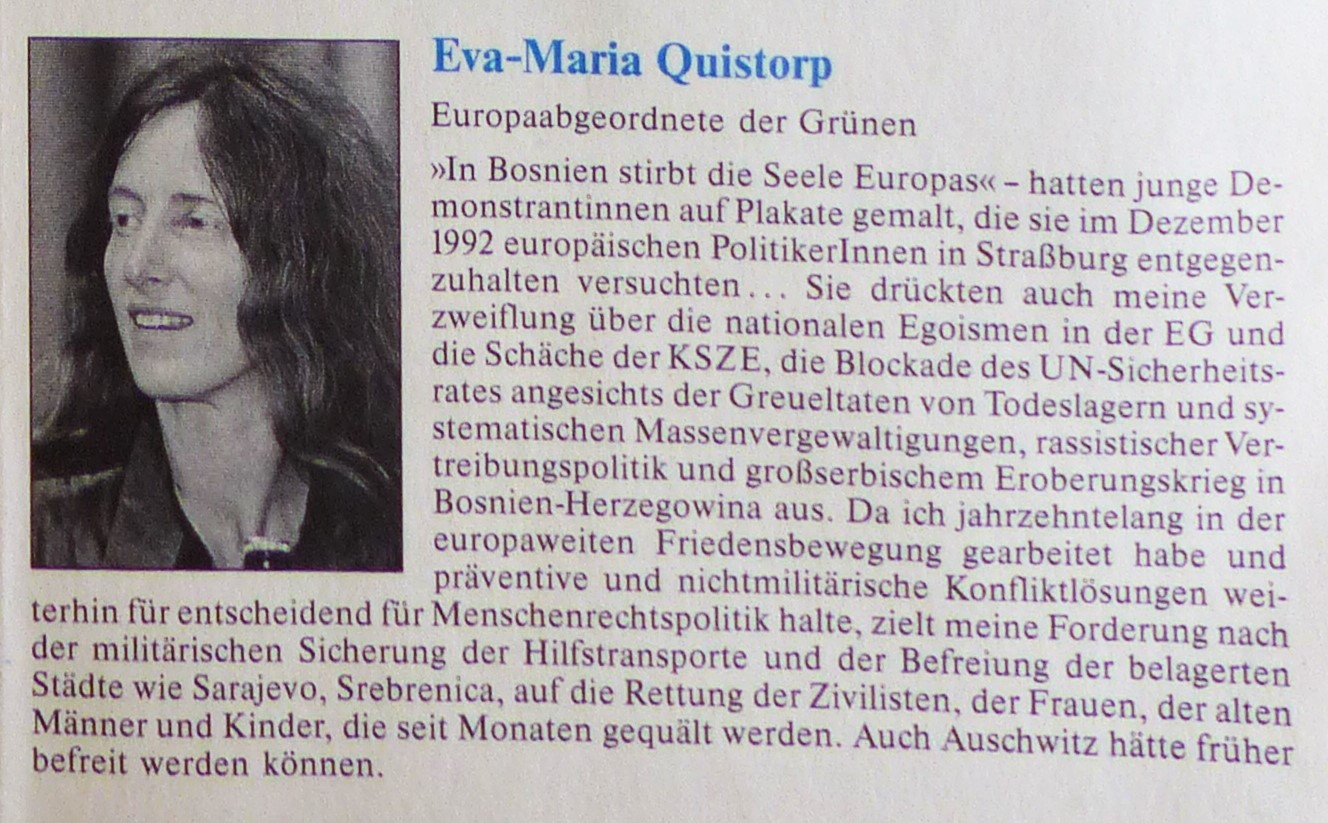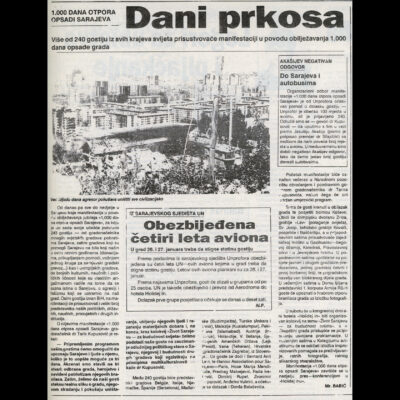| How to act |
Europe, Political interventions, Spreading information |
|---|---|
| Solidarity Map |
Belgium, Bonn, Germany, Italy, Spain, Strasbourg, USA, Washington |
| Chronology |
1992, 1993, 1994, 1995 |
Parliaments
Many politicians in Europe expressed concern about the war in Bosnia and Herzegovina, though it was rare for politicians to criticize their own government’s stance toward BiH and call for a change of politics. Nonetheless, there were some notable examples. In Germany, for example, one was the young German Christian Democrat MP Stefan Schwarz; another was Christian Schwarz-Schilling, who resigned in December 1992 from his position as Minister for Telecommunication in protest of Helmut Kohl’s politics towards BiH. In some countries, for example the UK, there were parliamentary initiatives and motions to pressure the government, but these failed to obtain majority support.
The only Western national parliament that strongly distanced itself from its own government’s Bosnia policy was the US Congress. In summer 1995, both the Senate and the House of Representatives, with a two-third majority, voted for a bill presented by Bob Dole and Joe Lieberman that asked President Clinton to lift the arms embargo against BiH.
Additionally, there were several resolutions regarding BiH and former Yugoslavia in the European Parliament. The EP called on EU governments, for example, to grant political asylum to war deserters, to accept the proposal to designate Sarajevo as European Capital of Culture, and also to dismiss Lord Owen as EU mediator for Bosnia and Herzegovina. European Parliament members who were particularly committed to Bosnia and Herzegovina included Alexander Langer (Italy), Eva Quistorp (Germany) and José Mendiluce (Spain).





